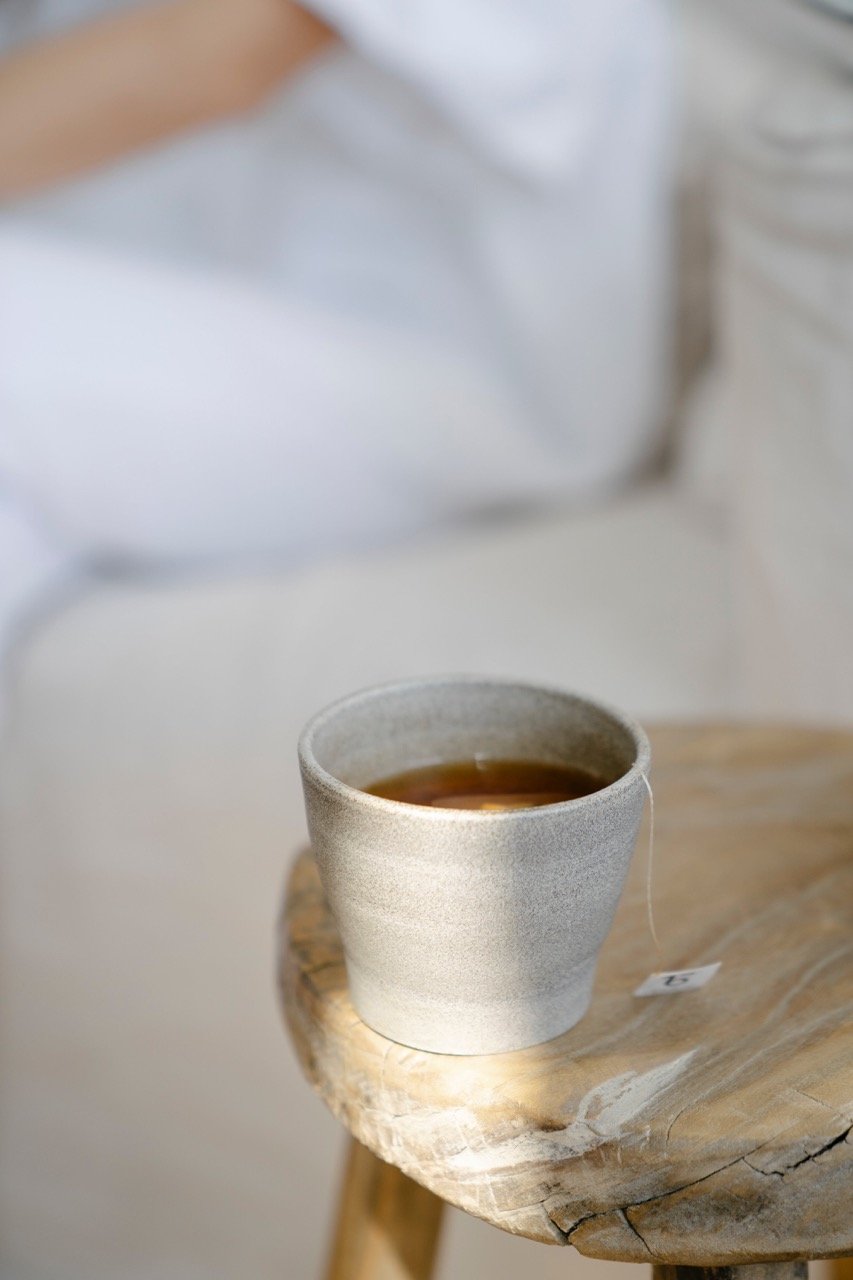HOW TO BEAT COMMON HEALTH DISCOMFORTS YOUR DOCTOR HASN’T SOLVED
It's not uncommon for me to have a conversation with someone about a discomfort they went to their doctor about and to hear that their doctor didn't ask them anything about their lifestyle. We have clients approach us for coaching with discomforts ranging from thyroid problems and digestion issues to acne and skin rashes. Doctors haven’t been able to get to the root for them, and this hurts my heart so much. We want to help. By banishing these common discomforts, you can finally feel happy and healthy.
Easy Daily Practices To Banish Discomforts And Enhance Your Health
Everything is interconnected in your body and without knowledge surrounding your stress levels, sleep, nutrition, movement, digestion, hydration, sunlight exposure, and more... one is solely guessing about solutions. So here's a little insight about how I would love to see doctors handling questions and concerns that you are bringing to them.
One, two or all of these discomforts might resonate with you. Try out the list of tips for each and see improvements you experience by simple daily habit shifts alone, you might be surprised! If you are finding you are having trouble being consistent in your behavior change in your busy lifestyle or want to dig deeper to uncover a more personalized root cause approach to healing, get in touch with us for a complimentary call and we’ll talk you through our strategy to help you optimize your health.
Say You're Struggling With Your Thyroid Health...
Your thyroid supports the rate in which your body processes fats and carbohydrates, so it’s pretty important it’s kept happy.
One place your doctor could talk to you about is your light exposure.
Your light exposure, both the natural and the artificial, has a HUGE impact on your thyroid's ability to function optimally.
Why? Your thyroid hormone release is based on your circadian rhythm, aka your body's clock. This built-in clock measures a 24-hour day based on a period of daylight and a period of darkness. This is why syncing up with the natural light outside is so important.
When your circadian rhythm is out of sync with the natural light, you can have a hard time producing adequate levels of thyroid hormone and also a hard time producing adequate levels of melatonin (your sleep hormone*). Melatonin is a hormone that is naturally made by the body. Its production is closely tied to light exposure where the pineal gland in the brain initiates production of melatonin in response to darkness.
*Similarly, these factors affect your sleep which has a huge impact on your health both physically and mentally. If you would like to learn more on this, check out this blog post on all things sleep optimization.
If this is you, add these to your habits list:
Use a light lamp or get outside within 5 minutes of waking to allow sunlight into the eyes.
Stop using tech 1-2 hours before bed (blue light blocks melatonin production) or use blue light blockers
Dim the lights in your house at night as it gets dark outside
Slow your brain, body and breath - here are examples….
Brain: Meditation will become your brain’s best friend. You can squeeze it into your evening routine with just a couple of minutes of calm. Try out one of the many apps to guide you or try it solo. If you struggle with this practice, you could try reading for 30 minutes before bed. This will eliminate the temptation of blue light messing with your circadian rhythm.
Body: Bring a stretch or yoga practice into your daily routine. If in the morning, a sun-salutation can invigorate your day, and in the evening a yin practice will aid the slow down of your body. It can be as simple as 5 minutes of stretching, holding each position for 5 breaths. I love simply lying with my legs vertical up the wall. It’s great for circulation and for aiding sleep.
Breath: Breathe using the square method - In for 5, hold for 5, out for 5, hold for 5. These increments can increase as you get more accustomed to the practice.
Say You're Struggling With Blood Sugar Balance:
One place your doctor could talk to you about is your protein intake.
Starting your day with a protein-rich breakfast within an hour of waking up is one of the best things you can do for supporting better blood sugar balance.
Protein helps to ease the blood sugar response and by prioritizing eating your breakfast within an hour of waking you'll also naturally support your circadian rhythm.
Eating is one of the ways, besides light exposure, that we tell our bodies what time it is and therefore create appropriate energy levels. We are typically more sensitive to insulin (an important hormone that helps balance blood sugar) during daylight hours, hence why these all go hand in hand.
If this is you, add these to your habits list:
Eat within 1 hour of waking
Make that meal protein rich (at least 25g of protein)
Evenly space meals 3-4 hours apart
Eat your protein first in your meal
Say You're Struggling With Low Energy:
One place your doctor could talk to you about is your mineral balance.
Low energy can be linked to multiple things, but I can tell you it's not a depletion of caffeine :) (sorry!) What it is often linked to though is low mineral levels, especially sodium. Shocked?
Sodium is important for allowing nutrients and hormones to pass through our cells. When one's levels are low, this slows down how quickly we can nourish our cells and this will impact your energy. Sodium is also an important mineral to help us respond appropriately to stress. If you are experiencing low energy and feel like you don't handle stress well, sodium could be a likely culprit.
If this is you, add these to your habits list:
Ensure adequate hydration: at least half your body weight at minimum in ounces of water
Add trace minerals and electrolytes to at least half your water
Filter your water! Check what's in your water here
Drink your coffee POST your first meal (or eliminate it!)
Stop drinking caffeine after 12pm
Say You're Struggling With Skin Rashes or Acne:
One place your doctor could talk to you about is your natural detoxification organ, your liver health.
Your liver is a key organ involved in keeping your skin healthy. When your liver becomes over burdened, it becomes unable to eliminate toxins effectively. This means that other organs such as your kidneys and skin have to pick up the slack, this can result in not-so-great impurities exiting your body via your skin's surface including dry, itchy skin, acne, a dull complexion, eczema, psoriasis or other rashes.
Any toxins that you eat, drink, put on your skin, or breathe in through your lungs, have to be filtered out by your liver. Your skin is a direct reflection of how efficiently this filtering process is working for you. If you’d like more detail on detoxifying your life, take a look at this blog post.
If your liver is congested, it is unable to break down these toxins efficiently which will lead to a toxic build up. The result? Your body will need to find a way to flush these toxins out in other ways. One of those ways is through your sweat glands and pushing toxic substances through your pores can irritate and inflame the skin.
Another factor involved here is the role that your liver plays in breaking down your fat intake.
When your detoxification ability is ‘slow’ or ‘congested’, those fats will float around longer in your bloodstream (YES this can also be a factor if you are struggling with high cholesterol!) and what can happen is the glands in your skin that produce oil will try to use this extra fat but because these fats often contain inflammatory toxins, it can upset the natural oils on your skin.
The quality of fats in your bloodstream affects the quality of sebum on your skin and the “clog-ability” of your pores. If you consume a high amount of “bad fats” – like those from seed oils, fried foods, margarines, etc – you’ll likely have more breakouts and worse skin!
If this is you, add these to your habits list:
Drink 1-2 cups of milk thistle and dandelion root tea daily
Try using Castor Oil packs a few times per week
Eliminate alcohol intake for a time period then introduce back at a low to moderate intake a few times per month.
Consume more fruits and vegetables - aim for 1-2 fruits and minimum of 4-5 servings of vegetables per day
Clean up your fat sources and choose fat sources like grass fed butter, cod liver oil, fatty fish, nuts, seeds, olive oil, olives
Say You're Struggling With Digestive Discomforts
One place your doctor could talk to you about is your food hygiene practices.
So many women tell me they feel bloated at some time throughout their day, thought their daily gas was ‘normal’ or that they didn’t realize hiccuping often or burping after meals was an indicator of anything they should look into fixing. Remember now, ‘normal’ might be common but it’s not always a good thing.
If you are finding that you bloat after eating, have irregular bowel movements, feel sluggish post mealtimes, get heartburn or acid reflux, hiccup often or burp without carbonated beverages, you don’t need to jump at functional testing yet (although we can utilize that tool to help you if your daily habits are already in check), you should work first on your food hygiene practices.
If this is you, add these to your habits list:
Drink your liquids around meal times. Preferably stopping 10 minutes before eating to allow gastric juices to replenish for arriving food breakdown.
Take 5 deep breaths before meals to calm your body and prepare it to digest
Smell your food to start the digestive juices flowing
Chew your food until its almost liquid before swallowing (help your digestive tract out!)
Eat slowly. Set your utensil or food down between bites
Ensure you are intaking between 25-35g of fiber per day
If you're struggling in any of these areas (or others), and want to feel better. My team and I can help.
We look at all the systems of the body (and your lifestyle) to help prevent issues, understand root causes to those already there, and help you support your longevity and sustainability of health and weight.
We are major advocates for your knowledge and your health and are here to help you not only decide the best plan of attack for you personally, but also help you figure out how to make those behavior changes sustainable. Take the first step with a complimentary call to find the best path for you, or if you’re ready to make the change, apply for coaching today!



